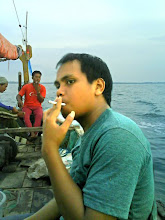
The Ad Campaign: An Obama Infomercial, Big, Glossy and Almost Unavoidable
By Jim Rutenberg
THE PROGRAM The program gave a new meaning to the word “infomercial” and, for that matter, to all notions of political advertising. Executed with high standards of cinematography, with help from the director of “An Inconvenient Truth,” Davis Guggenheim, the infomercial was part slickly produced reality program; part Lifetime biography; and part wonkish policy lecture with music that could have come from “The West Wing.”
Its imagery was acutely Middle American: suburban lawns, American flags, corn fields and factories. It was packed with swing state and Midwestern governors and senators who spoke in glowing terms of Mr. Obama; a brigadier general, now retired, vouched for his national security credentials.
At the heart of the program were the stories of four everyday families of different backgrounds who told stories of lost health care benefits, the necessities of food rationing and the need to hold more than one job. Mr. Obama told how his mother had to worry about whether the health care provider at her new job would cover her as she battled ovarian cancer. And he retold his background as the grandson of a man who fought in “Patton’s Army” and a grandmother who worked on a bomber assembly line in World War II.
But for much of the program Mr. Obama stood before a presidential desk as he laid out his tax plans, health care plans and his approach to world affairs, saying that, as commander in chief, “I’ll renew the tough, direct diplomacy that can prevent Iran from obtaining nuclear weapons and curb Russian aggression.”
In somewhat jarring fashion, the infomercial ended with Mr. Obama addressing an auditorium audience in Florida, live.
ANALYSIS As in his speech in Berlin and his stadium nomination speech last summer, Mr. Obama’s campaign was again practicing its brand of big-event politics with this infomercial: Taking over a huge chunk of the television dial in an effort to make a closing sale with an audience that was likely to be well into the millions. And like the gambits before it, the advertisement held risks just by definition of what it was: A giant financial outlay that made Mr. Obama almost unavoidable to television viewers who are by now weary from all these many months of politicking.
Because Mr. Obama is already running the most intensive and wide-ranging presidential advertising campaign in history, with electronic billboards for his candidacy showing up even in home video games, it raised the obvious question, “How much is too much?” With a heavy-handed style of filmmaking devised to pull at heart strings as Mr. Obama ticked through the commercial’s hard-luck stories, it risked seeming manipulative.
(Senator John McCain’s campaign wasted no time in issuing a statement that read: “As anyone who has bought anything from an infomercial knows, the sales-job is always better than the product. Buyer beware.”)
But at other times, the infomercial appeared to serve perhaps a safer, workmanlike purpose. With no attacks on Mr. McCain or his running mate, it was largely in keeping with Mr. Obama’s strategic imperative this year: Make voters comfortable with the idea of him in the Oval Office while at the same time presenting him as a candidate who can connect with everyday, middle-class voters struggling through the toughest economic times in generations.
It would seem a fool’s errand to score the success of the program immediately after it was shown. First impressions this year have at times proved to have short shelf lives, especially those shared in the news media.
The New York Times Politics Blog




